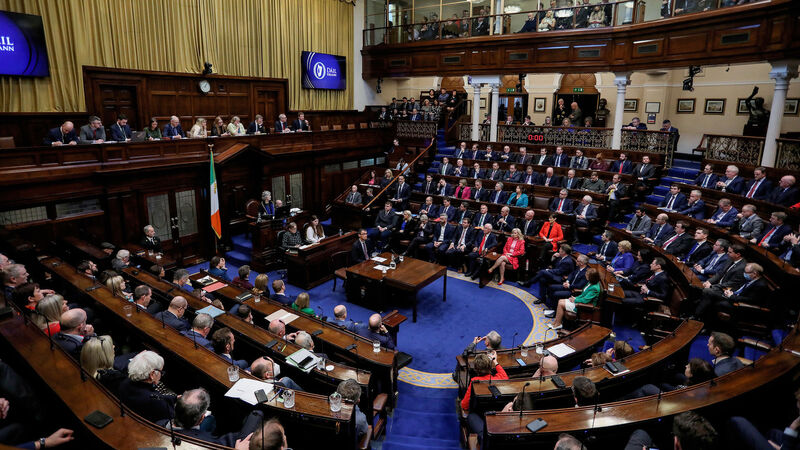Irish Examiner view: New government in sight as deal finally done

The 34th Dáil reconvenes in Leinster House next Wednesday. Stock picture: Maxwells/PA
There was no white smoke belching from a chimney in Leinster House yesterday, but a new Government is in sight — even if we have not seen ministers collect their seals of office from Áras an Uachtaráin yet.
The element of suspense was negligible: Since the election in November, most observers believed the numbers ensured Fianna Fáil and Fine Gael would do a deal with the Regional Independents Group and the two Healy-Rae brothers, and so it has proved.













